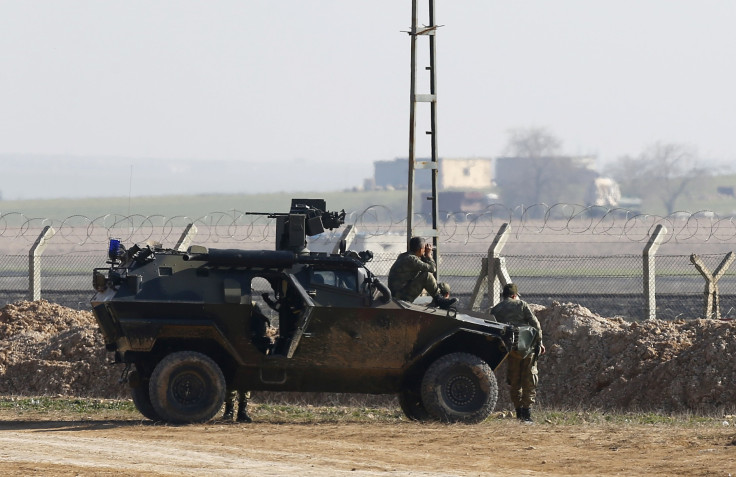Turkish Tomb Mission: Soldiers Rescued From Syria After Guarding Historic Site Surrounded By ISIS

A Turkish rescue mission to rescue 38 soldiers trapped for eight months by Islamic State militants at a historic Turkish tomb in Syria was "extremely successful," Turkish Prime Minister Ahmet Davutoglu said Sunday. One soldier was reported to have died accidentally, but no further details were released.
The tomb was along the Euphrates River, about 23 miles into Syria from the Turkish border. Davutoglu said the operation did not breach a treaty with the Syrian government, despite Damascus' objections, giving Turkey control of the site, Reuters reported. The overnight operation that began late Saturday used 39 tanks and nearly 600 ground troops, as well as reconnaissance drones, the Los Angeles Times reported.
Suleyman Shah's tomb was considered sovereign Turkish territory under the 1921 Treaty of Ankara, and Turkey made use of its right to fly the Turkish flag at the site and guard it with troops. Ordinarily, 40 soldiers guarded the tomb, rotating every six months, although last year those soldiers were replaced with 38 special forces troops as the Islamic State militant group encroached on the site. Those troops were then trapped for eight months.
Turkey informed members of the coalition fighting the Islamic State group before beginning its rescue mission. But the Syrian government said Turkey had violated the 1921 treaty by going forward without consent from Damascus after Turkey informed the Syrian consulate in Istanbul it would conduct the operation. The Syrian Foreign Ministry has called the operation an act of "flagrant aggression," Sky News reported.
In 2012, Turkey authorized cross-border operations into Syria, but this particular operation was the first of its kind as the country has been slow to join in actively fighting the Islamic State group, also known as ISIS. The Turkish military said it had taken the remains of Shah, among other artifacts, then destroyed the tomb's buildings to prevent their further use. A new tomb is planned for a site within Kurdish-controlled territory in Syria, closer to and within site of the Turkish border, Reuters reported.
Suleyman Shah was a Turkic tribal leader and the grandfather of Osman I, founder of the Ottoman Empire, which in its heyday stretched from Turkey into the Caucasus and parts of southeastern Europe, as well as into Africa. The empire began in the late 13th century and collapsed for good in 1923 after World War I. An epigraph in Shah's tomb stated, according to the BBC, he drowned in the Euphrates "in search for a home for himself and his people."
© Copyright IBTimes 2024. All rights reserved.






















